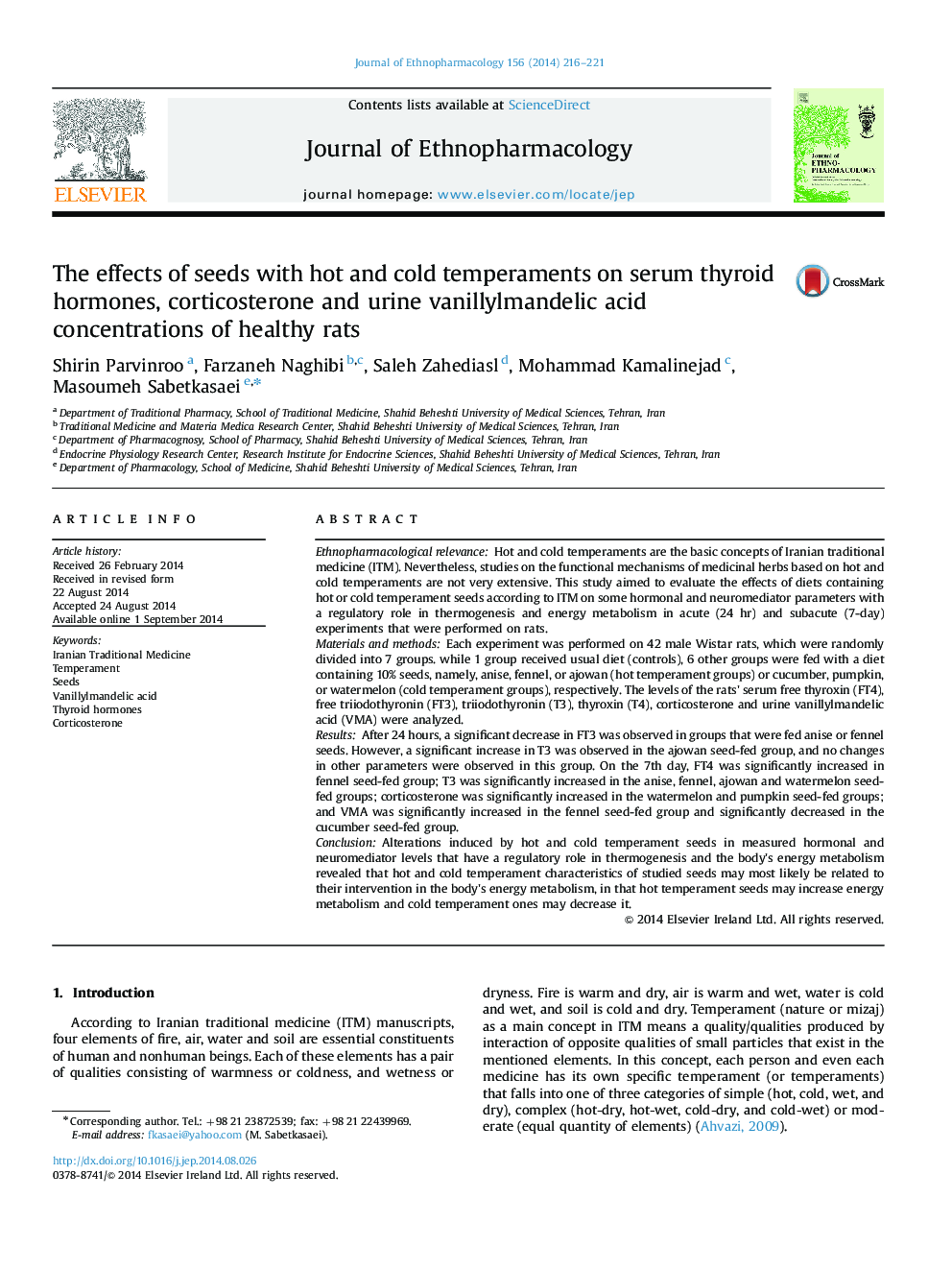| کد مقاله | کد نشریه | سال انتشار | مقاله انگلیسی | نسخه تمام متن |
|---|---|---|---|---|
| 2545259 | 1560405 | 2014 | 6 صفحه PDF | دانلود رایگان |
Ethnopharmacological relevanceHot and cold temperaments are the basic concepts of Iranian traditional medicine (ITM). Nevertheless, studies on the functional mechanisms of medicinal herbs based on hot and cold temperaments are not very extensive. This study aimed to evaluate the effects of diets containing hot or cold temperament seeds according to ITM on some hormonal and neuromediator parameters with a regulatory role in thermogenesis and energy metabolism in acute (24 hr) and subacute (7-day) experiments that were performed on rats.Materials and methodsEach experiment was performed on 42 male Wistar rats, which were randomly divided into 7 groups. while 1 group received usual diet (controls), 6 other groups were fed with a diet containing 10% seeds, namely, anise, fennel, or ajowan (hot temperament groups) or cucumber, pumpkin, or watermelon (cold temperament groups), respectively. The levels of the rats׳ serum free thyroxin (FT4), free triiodothyronin (FT3), triiodothyronin (T3), thyroxin (T4), corticosterone and urine vanillylmandelic acid (VMA) were analyzed.ResultsAfter 24 hours, a significant decrease in FT3 was observed in groups that were fed anise or fennel seeds. However, a significant increase in T3 was observed in the ajowan seed-fed group, and no changes in other parameters were observed in this group. On the 7th day, FT4 was significantly increased in fennel seed-fed group; T3 was significantly increased in the anise, fennel, ajowan and watermelon seed-fed groups; corticosterone was significantly increased in the watermelon and pumpkin seed-fed groups; and VMA was significantly increased in the fennel seed-fed group and significantly decreased in the cucumber seed-fed group.ConclusionAlterations induced by hot and cold temperament seeds in measured hormonal and neuromediator levels that have a regulatory role in thermogenesis and the body׳s energy metabolism revealed that hot and cold temperament characteristics of studied seeds may most likely be related to their intervention in the body׳s energy metabolism, in that hot temperament seeds may increase energy metabolism and cold temperament ones may decrease it.
Figure optionsDownload high-quality image (244 K)Download as PowerPoint slide
Journal: Journal of Ethnopharmacology - Volume 156, 28 October 2014, Pages 216–221
